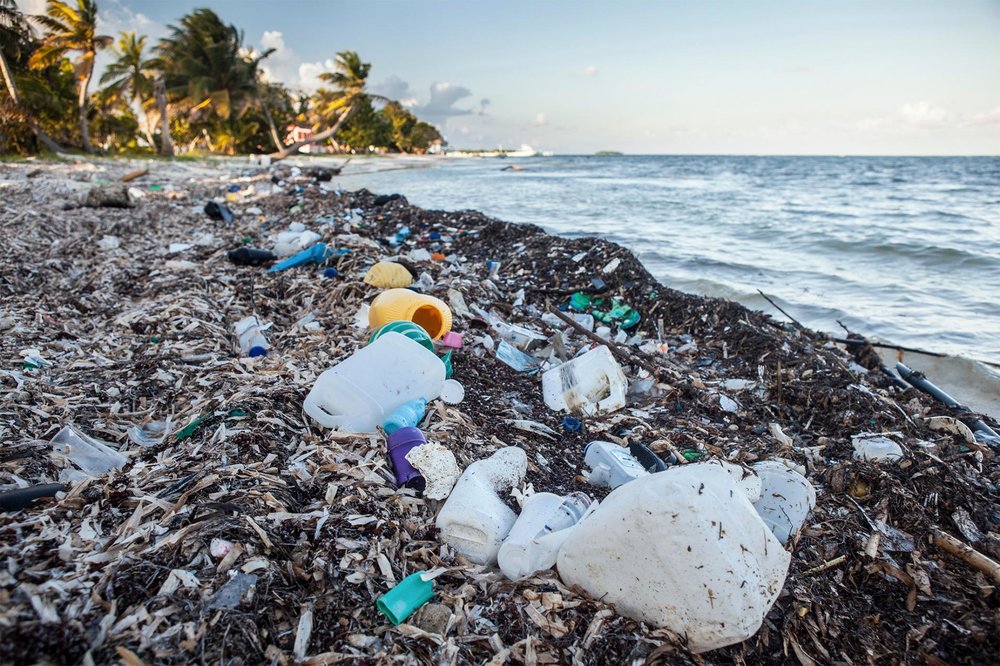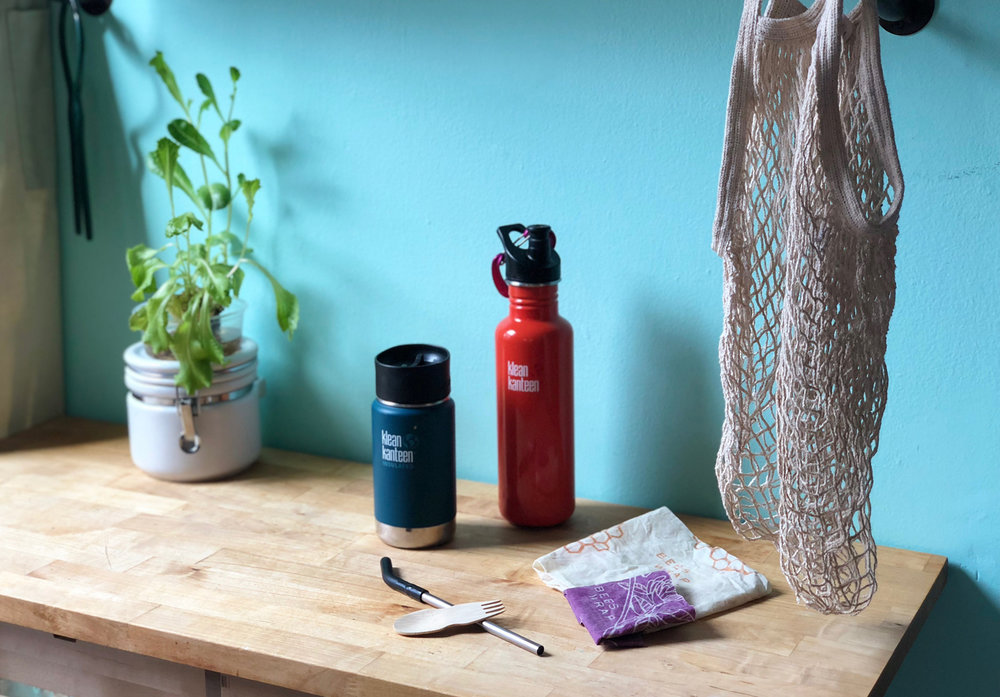A version of this article previously appeared on Sustaining Life.
This just in–the UK has decided to ban the sale of single-use plastics, including plastic straws, stirrers, and Q-tips! This follows a very successful tax on plastic bags that has reduced their use by 90%–saving jaw-dropping 9 billion bags already. The UK government estimates that “there are over 150 million tonnes of plastic in the world’s oceans and every year one million birds and over 100,000 sea mammals die from eating and getting tangled in plastic waste.” As Prime Minister Theresa May noted, “Plastic waste is one of the greatest environmental challenges facing the world, which is why protecting the marine environment is central to our agenda at the Commonwealth Heads of Government Meeting.”
Thank goodness the UK is stepping up to do something about this vast, terrifying problem. If you’re wondering how things got to be this bad, here’s a quick break down of the plastic crisis.
The Plastic Conundrum
The word plastic comes from the Greek word plastikos, meaning “capable of being shaped or molded.” Such an innocent origin for a substance that, as we currently know and use it, causes so much trouble! Yet it is plastic’s ability to be shaped, molded, and engineered to become pretty much anything that has allowed it to be used so ubiquitously. Plastic can be found in any industry and anywhere in the world in some form, and I won’t deny that in many of those cases it is acting beneficially.
I’m not writing this post in order to vilify plastic as a blanket statement. Sure, I have a lot of problems with the substance, but we have to recognize the good along with the bad. Plastic is an incredible material because it’s so strong and takes a very long time to degrade. Plastic plays a huge role in the medical industry where it makes up durable machines, flexible hoses, and sterile wrappings which humans rely on for any number of health reasons. Plastic makes automobiles, certain types of plumbing, and space travel possible. Despite the myriad ways that plastic causes problems, it is also a necessity for the modern world.
So what is the problem with plastic? It’s not so much the plastic items that are meant to last forever but the ones which are intended to be used for a short amount of time that are causing an environmental disaster. I’ll never understand how plastic, a material which is celebrated for its ability to last forever, became the go-to for making single-use items that are meant to be used for 10 minutes before being disposed of. These single-use items never biodegrade and because they’re used so frivolously, they are piling up in our landfills and overflowing into natural habitats. Think about it, every drinking straw, every flimsy plastic fork, every lighter, every plastic bag that you have ever used is still here on this Earth with us.

Even when we recycle (or, perhaps more accurately, try to recycle) we can’t quite address the problem with plastic on our planet. There are a number of different types of plastic, some of which are recyclable in most US cities and others which are pretty much impossible to recycle. Not to mention that recycling in the US still needs a lot of work, as EcoCult discovered last America Recycles Day. Items like to-go coffee cups and their lids, bottle caps, and the little tamper-proof bits of shrink wrap that come wrapped around jars of coconut oil, peanut butter, and beauty products all end up in the landfill instead of in the recycling. Even plastics that are generally recyclable, like PET water bottles, are only able to be downcycled instead of recycled. So instead of that bottle becoming another bottle, it may be recycled into a pair of yoga pants or a park bench instead. While downcycling does add another lifecycle or two to these types of recyclable plastics, the material degrades each time it is re-processed and therefore cannot be recycled indefinitely the way that metal or aluminum can.
With recycling systems operating the way they currently do, there are still a lot of recyclable plastics that never even find their way to a new life but instead end up in a landfill or, oftentimes, in the ocean. Plastics in the ocean aren’t just floating around cluttering up our beaches and making the world an uglier place, they’re interacting with marine life, too. Animals like turtles, fish, and birds have all been found dead from ingesting items like bottle caps, toothbrushes, straws, lighters and more. These adorable little animals eat colorful bits of plastic that looks like food, ending up with so much of the stuff in their stomachs that they die slowly from starvation. Turtles and larger marine mammals have also been found strangled by plastic bags, and some even grow up deformed or are physically harmed by the presence of plastic in their habitats. Google the images, they’re not pretty.
Even smaller bits of plastic are causing problems in our oceans, whether they’re exfoliating microbeads used in some brands of face wash, microfibers that shed off of synthetic clothing when it’s washed, or smaller bits of plastic that have broken off of larger items. Because of its molecular makeup, plastic is prone to attracting and attaching to other molecules, including toxins. Toxins attach themselves to microplastics in the ocean which are often ingested by zooplankton, tiny little organisms which sit near the bottom of the food chain. As fish and other animals eat those plankton, they too are ingesting plastics.

Moving Forward
It’s easy to feel like this is a problem only solvable by government actions, like the one taken by the UK. However, both individuals and governments have important roles to play.
If you don’t live in the UK, there are several things you can do to help, including supporting sustainable brands that opt for compostable and/or non-plastic materials. But you don’t have to buy anything to get started right now. Commit to avoiding all single-use plastic, which means being diligent about toting around reusable bags, mugs, and eating utensils. Because every piece of plastic you use stays on the earth, everything you do counts! Furthermore, vote for thoughtful leaders in both minor and major elections.
Clearly, single-use plastic is a big problem. Let’s maintain our momentum and hold ourselves and our governments to the highest of standards.
Read more on Sustaining Life.
Also by Faye: Chocolate Hazelnut Torte
Related: Going #PlasticFree? Try These 5 Luxe Eco Brands, From Tea To Vegan Lipstick
12 Ways To Minimize Your Plastic Footprint & Feel So Much Better About The Turtles
Get more like this—Subscribe to our daily inspirational newsletter for exclusive content!
__
Photos: National Geographic, Faye Lessler
